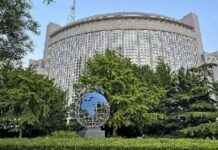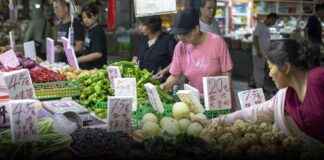At the 37th African Union (AU) Summit in Addis Ababa, Ethiopia, in February 2024, African heads of state made a significant decision to ban the trade of donkey skin across the continent. This move marked a crucial turning point in the evolving business relationship between China and Africa, as well as in addressing issues related to rural development, women’s rights, and poverty alleviation. The ban was a result of a unified pushback against the profitable trade of donkey hides, which had been flourishing between Africa and China.
The decision to ban the donkey hide trade came after years of concern and dismay expressed by communities in small towns and rural areas across Africa. The trade of donkey skins has a long history, dating back to around 5,000 BC in East Africa when the donkey was first domesticated. These animals have played a crucial role in various aspects of human life, from aiding in the construction of the pyramids in Egypt to providing transportation for millions of children to school in developing countries.
In China, the use of donkeys evolved beyond just transportation, with their hides becoming a key ingredient in traditional Chinese medicine known as ejiao. This medicinal treatment, made from extracting collagen from donkey hides, gained popularity in recent decades, particularly among women seeking its purported health benefits. The demand for ejiao led to a significant increase in the price of donkey hides, creating a supply problem as donkeys are challenging to breed compared to other livestock.
The decline in China’s donkey population prompted the country to turn to other sources for donkey hides, leading to a global trade in donkey skins primarily from African countries. This trade had adverse effects on the rural communities where donkeys were sourced, including increased labor for women, reduced access to clean water, and inflated prices for replacement donkeys. The inhumane treatment of donkeys in the skin trade also raised concerns among animal welfare activists, prompting calls for a ban on the slaughter of donkeys for their skins.
The Pan-African Donkey Conference held in Tanzania in 2022 laid the groundwork for a continent-wide ban on the donkey skin trade, which was eventually implemented by the African Union in 2024. This decision was met with mixed reactions in China, with some expressing disappointment at the need for such a ban and others questioning its Western influence. The ban has significant implications for the ejiao industry in China, with potential shifts in supply sources and increased regulation of the trade.
Moving forward, the enforcement of the ban by China will be crucial in ensuring the preservation of African donkeys for the benefit of rural communities. The ban also presents an opportunity for China and Africa to collaborate on sustainable agricultural practices and trade, further strengthening their economic ties. While the ban was not explicitly about China-Africa relations, it has the potential to reshape the dynamics between the two partners and pave the way for more sustainable practices in the future.
As countries like Kenya and South Africa take steps to regulate their livestock industries and protect animal welfare, the implementation of the ban on the donkey skin trade remains a top priority for activists and stakeholders. By working together to support the ban and celebrate the preservation of donkeys, Africa and China can set a precedent for sustainable trade practices and animal protection measures globally.

















